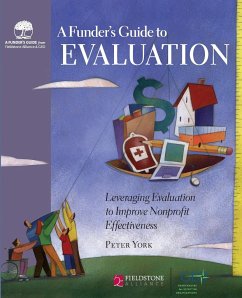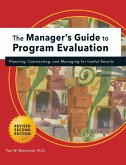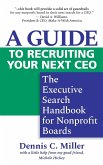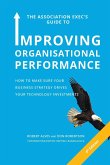Here's how funders are leveraging evaluation to improve nonprofit effectiveness Traditionally, funders expect evaluation to show that resources are being used wisely. But evaluation can be a much more powerful tool-for both funders and nonprofits. Forward-looking grantmakers and grantees are leveraging their evaluations, ensuring that the time and money spent ultimately improves effectiveness for everyone. This book shows how they're doing it. A Funder's Guide to Evaluation: Leveraging Evaluation to Improve Nonprofit Effectiveness will help funders use evaluation to build the capacity of grantees. Inside, you'll learn How the "evaluative learning" approach furthers ongoing improvement via collaborative, stakeholder influenced evaluations How to bridge the differences in what funders and nonprofits need from evaluation How evaluation builds four critical capacities?leadership, adaptive capacity, management, and technical capacity Seven steps a funder can take to build the evaluative learning capacity in nonprofits Thirteen specific evaluative learning strategies that funders can support Worksheets and assessment tools will help funders 1) assess their readiness to implement evaluative learning; 2) develop a logic model; 3) uncover grantees' current evaluation efforts and preparedness for evaluative learning; and 4) use resources wisely when selecting an evaluative learning support strategy. When the funding community supports evaluative learning, nonprofits and funders together can figure out how to strengthen programs, better allocate resources, and share successful models.
Bitte wählen Sie Ihr Anliegen aus.
Rechnungen
Retourenschein anfordern
Bestellstatus
Storno






